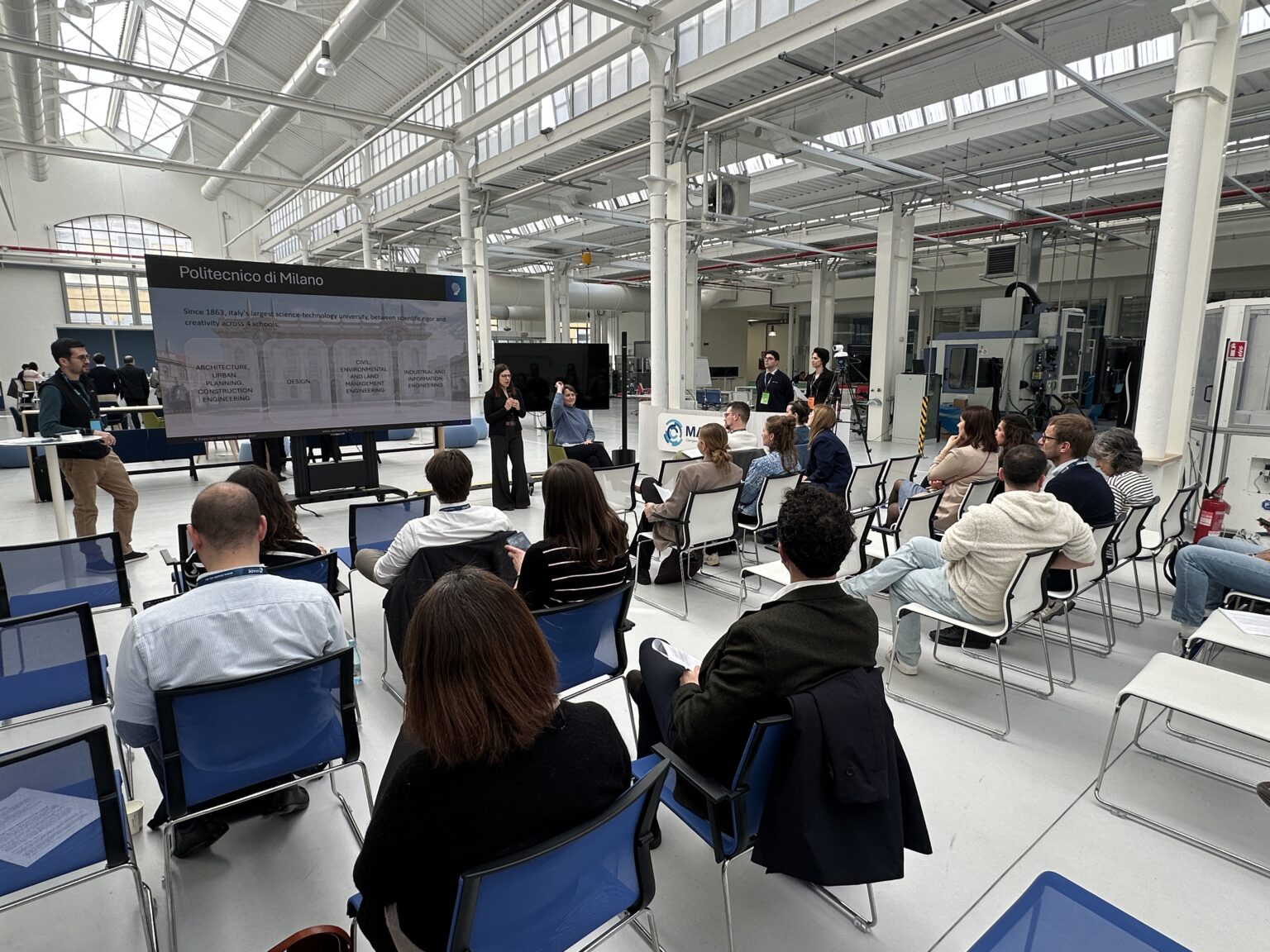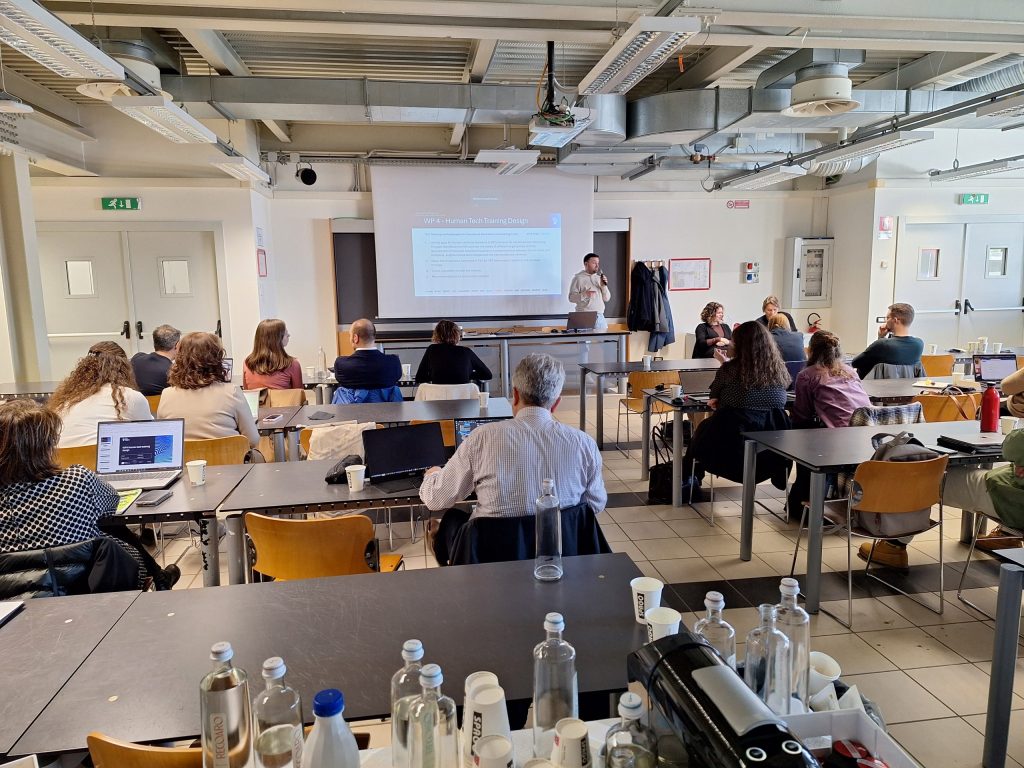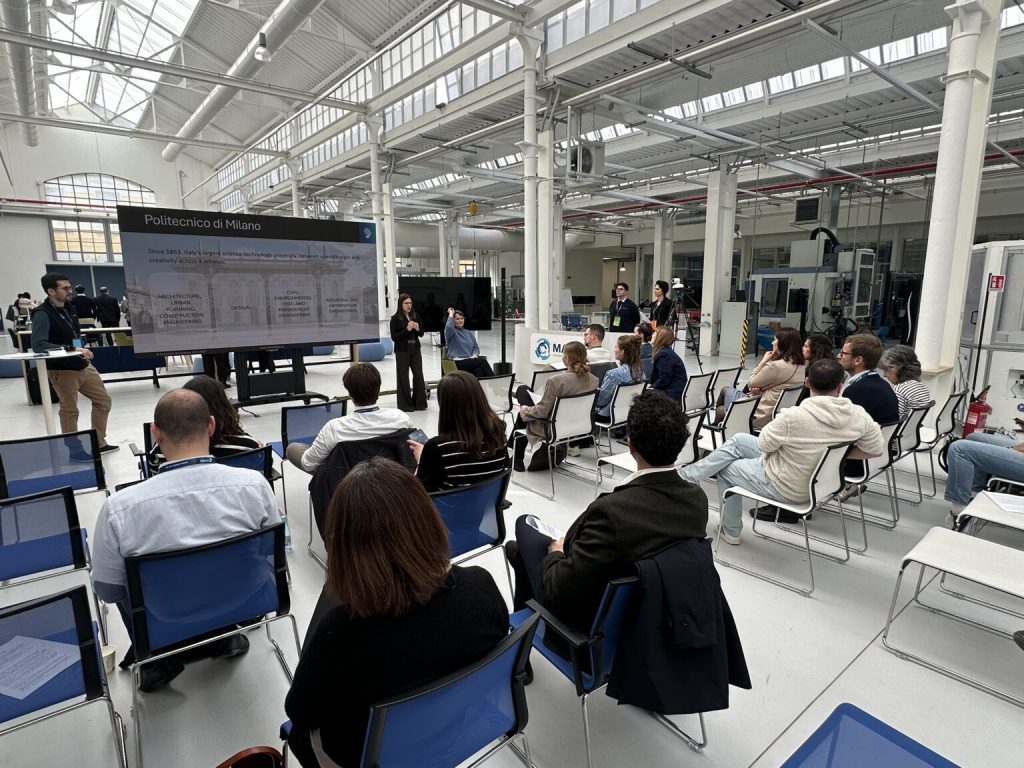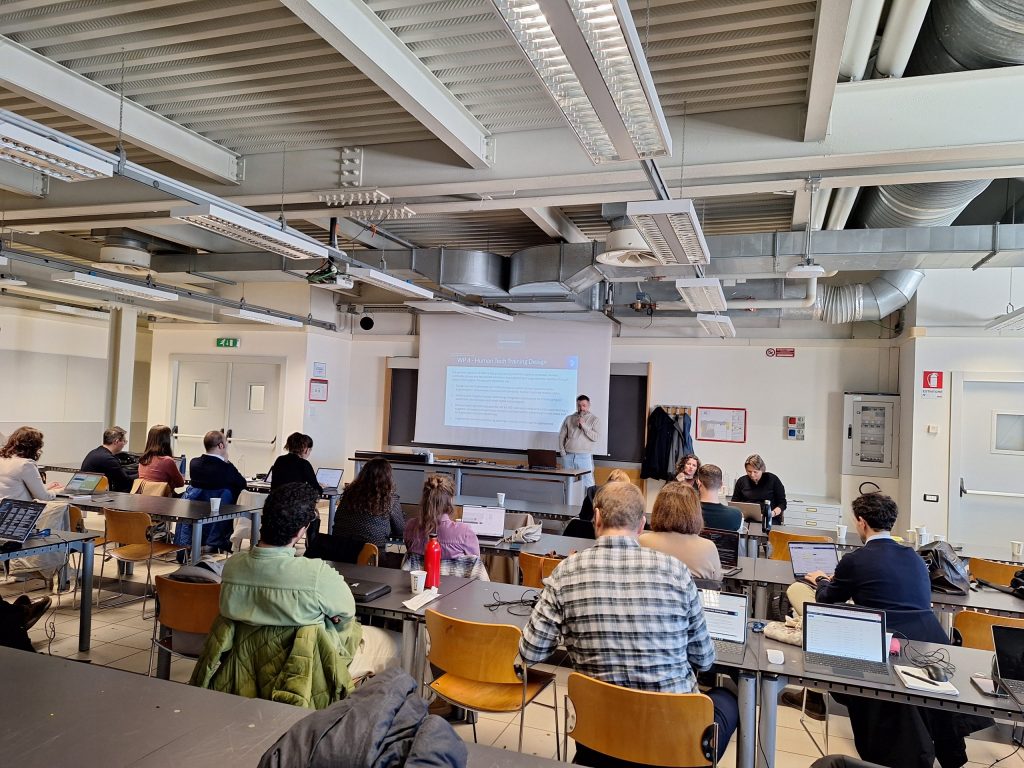SKillAIbility Consortium in Milan
This post is also available in the following languages: Euskara, Español
Last week, the SKillAIbility consortium came together in Milan for its first General Assembly, hosted by Politecnico di Milano and MADE Competence Center, with all 14 partners from across Europe present. This milestone event was an opportunity to review the progress made so far and to set the course for the next steps toward building a more inclusive, AI-augmented manufacturing workforce. During the assembly, we presented Work Package 4 (WP4), where we will be designing training methodologies to empower workers, vulnerable groups, and low-skilled individuals in the manufacturing sector through AI. Our aim is to create Learning Factories (LFs) that strengthen human-technology integration with a human-centered approach, encouraging meaningful collaboration between human tasks and AI/automation. Alongside this, we are developing methodologies for vocational education and training (VET) and lifelong learning, complemented by trainer guidelines and a toolkit to design inclusive and certifiable training experiences.
The assembly also highlighted progress across other work packages: WP2 introduced the project’s foundational framework, analyzing societal, technical, and technological needs while considering megatrends such as ageing, migration, and the green transition, supported by early co-creation activities with workers, educators, and citizen groups. WP3 presented its “Augmented Workforce Canvas,” designed to assess the socio-technical impact of AI and ensure inclusivity from the start, particularly for groups such as older or deaf workers. WP5 focused on developing human-centric AI design principles and advancing its Design Science Research methodology, ensuring technologies are created iteratively with direct human feedback and rooted in ethical and social values. WP6 shared preparations for piloting SKillAIbility’s approaches in real-world learning factories, testing use cases around human augmentation, empowerment, and inclusivity. Finally, WP7 outlined early strategies to maximize long-term impact, including translating project outcomes into actionable policy recommendations and sustainable business models.
Together, these discussions underscored SKillAIbility’s commitment to ensuring that the digital transformation of manufacturing is not only technologically advanced but also socially inclusive, human-centered, and future-proof.


